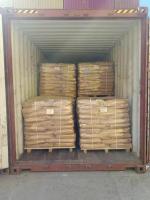what is the main application of super absorbent polymer in mineral processing?
The main application of super absorbent polymers (SAPs) in mineral processing is as a flocculant and solid-liquid separation agent. SAPs are cross-linked polymer materials with the ability to absorb and retain large amounts of water or aqueous solutions, forming a gel-like substance. This unique property makes them highly useful in various mineral processing operations.
1. Settling and Dewatering:
SAPs are used as flocculants to aid in the settling and dewatering processes in mineral processing. When added to mineral suspensions, SAPs form a network of interconnected chains that trap fine particles, facilitating their aggregation into larger, settleable flocs. This process improves the settling rate and promotes efficient solid-liquid separation. By enhancing sedimentation and reducing water content in the final product, SAPs contribute to improved operational efficiency and reduced costs.
2. Tailings Management:
SAPs find particular application in tailings management, which involves the disposal and treatment of waste materials generated during mineral extraction processes. SAPs can be used to dewater tailings, reducing the volume of water retained and facilitating the formation of stackable, denser tailings deposits. By enhancing the dewatering process, SAPs help reduce the environmental footprint of tailings storage facilities and minimize the risk of tailings dam failures.
3. Filtration and Thickening:
SAPs are employed as aids in filtration and thickening processes within mineral processing plants. When added to slurries or suspensions, SAPs form a gel-like structure that improves the capture and retention of solid particles during filtration. This results in increased filtration rates and improved cake formation. Additionally, SAPs enhance the thickening efficiency by promoting the aggregation of fine particles and improving the underflow density in thickeners and clarifiers.
4. Ore Beneficiation:
In ore beneficiation processes, SAPs are utilized to enhance the separation of valuable minerals from gangue materials. By improving the settling characteristics and solid-liquid separation efficiency, SAPs aid in the concentration of valuable minerals and the removal of impurities. This contributes to higher product quality and recovery rates in mineral beneficiation operations.
5. Environmental Remediation:
SAPs have applications in environmental remediation associated with mineral processing activities. They can be used to treat contaminated water or soil by facilitating the separation of solid particles from aqueous solutions. SAPs aid in the removal of suspended solids, heavy metals, and other pollutants, helping to mitigate the environmental impact of mining and mineral processing operations.
It is important to note that the specific application of SAPs in mineral processing may vary depending on the type of minerals being processed, the characteristics of the ore, and the desired process outcomes. Different types and formulations of SAPs may be employed to optimize performance in specific mineral processing operations. Additionally, the dosage and application methods of SAPs should be tailored to meet the requirements of each process, taking into account factors such as pH, temperature, and ore composition.

